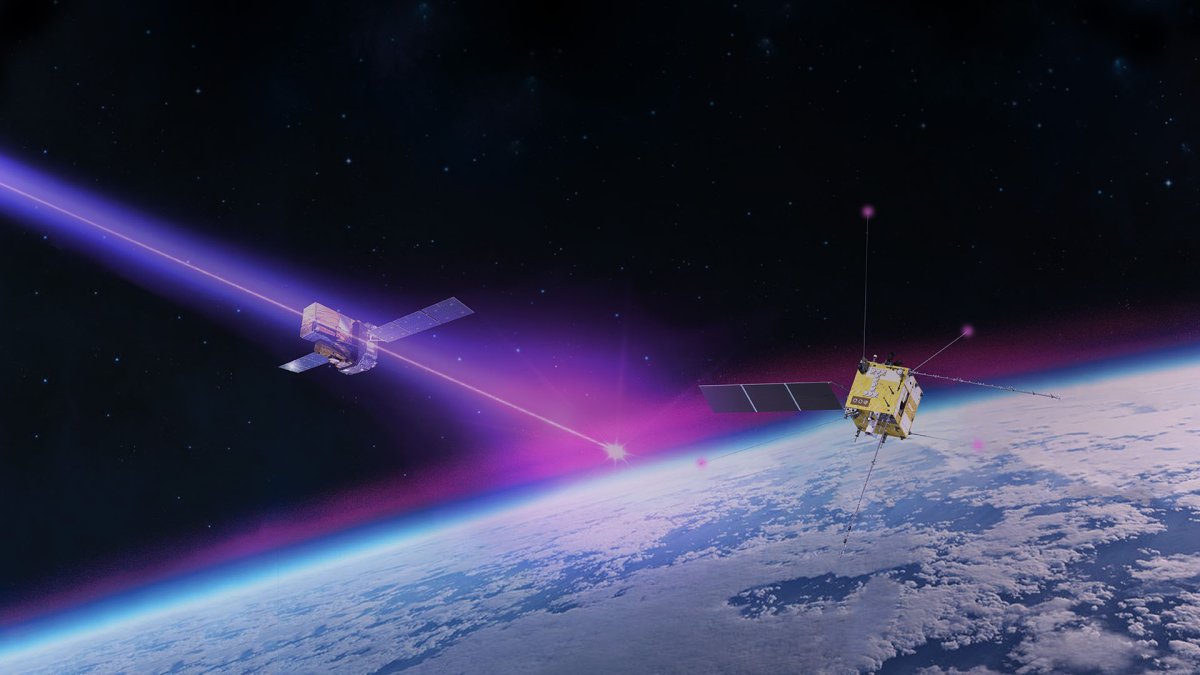A massive gamma-ray burst spotted by scientists last year is possibly the most powerful ever detected in the Earth's atmosphere.
The gamma-ray burst, named GRB 221009A, is thought to have caused huge variations in the electrical field of the Earth's ionosphere at a height of around 310 miles above the ground, according to a new study in the journal Nature Communications.
Gamma-ray bursts, the most powerful bursts of energy in the universe, are spat out from the most violent explosions known to physics, such as a neutron star collision. These immensely powerful pulses of light usually come in two opposite beams, like the rays of a lighthouse.
"GRB 221009A, being the highest energetic GRB ever recorded by mankind, deeply impacted also the top-side ionosphere for the first time," Mirko Piersanti, a space weather researcher at Italy's University of L'Aquila, told Newsweek.

He went on: "Its photon flux peak of about 6 million per second [previously the highest GRB delivered 500,000 photons per second] was able to double ionize the entire ionosphere, generating intense electric current that we were able to observe for the first time ever using in situ low Earth orbit satellite measurement of the electric field."
The GRB occurred on October 9, 2022, in the Sagitta cluster, a constellation, and lasted around seven minutes, but it was observed for roughly 10 hours after it was first detected. It is thought to have originated around 2 billion years ago, possibly due to a massive star undergoing a supernova or birthing a black hole.
After billions of light-years of travel, this GRB was still powerful enough to cause strange variations in the Earth's ionosphere, a layer of the atmosphere between 37 and 190 miles above the ground that is filled with electrically charged ions.
"It perturbed for several hours the Earth's bottom side ionosphere [at an altitude of 50 to 75 miles]," Piersanti said. "In fact, as for previous high-magnitude GRB, it disrupted long-wave radio communications."
If a more powerful gamma-ray burst, or one much more nearby, hit the Earth, the result could be catastrophic. Some theories speculate that a GRB could wipe out all life in its home galaxy and that everything caught in its beam would be vaporized for up to 200 light-years, according to the European Space Agency. However, the actual impact of such a GRB is unclear.

Piersanti said there has been a great debate about the possible consequences of a gamma-ray burst in our galaxy.
"The idea is that a supernova in our own galaxy might have much more serious consequences," he said. "In the worst case, the burst would not only affect the ionosphere, it could also damage the ozone layer, allowing dangerous ultraviolet radiation from the sun to reach Earth's surface.
"Such an effect has been speculated to be a possible cause of some of the mass extinction events known to have taken place on Earth in the past," he said. "But to investigate the idea, we will need a lot more data."
Do you have a tip on a science story that Newsweek should be covering? Do you have a question about gamma-ray bursts? Let us know via science@newsweek.com.
Uncommon Knowledge
Newsweek is committed to challenging conventional wisdom and finding connections in the search for common ground.
Newsweek is committed to challenging conventional wisdom and finding connections in the search for common ground.
About the writer
Jess Thomson is a Newsweek Science Reporter based in London UK. Her focus is reporting on science, technology and healthcare. ... Read more





